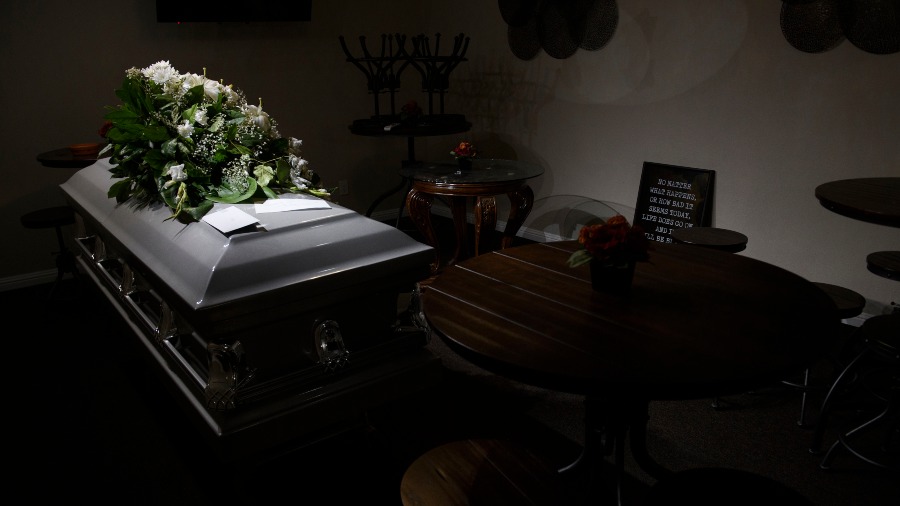
At least 300 people die from COVID-19 every day, cemeteries warn that they are short of space and seem to be accumulating because there are too many funerals to be done every day.
A corpse in the break room. Embalmed bodies in the garage. Boyd Funeral Home, a small family-owned funeral home in Los Angeles, is so saturated with COVID-19 victims that it has begun turning down customers for the first time in its history.
“Last weekend I sent away 16 families that I could not serve,” says owner Candy Boyd. “It’s sad. But that’s the way it is now.”
In the past two weeks, the coronavirus hit the city of Los Angeles and about 80% of those who passed through the doors died from the virus.
One in ten residents of the country’s second largest city has been infected since the start of the pandemic, and Nearly 300 people died daily last week as infections increased.
You could read “Covid Language.” This is the strange new symptom in coronavirus patients
The phones don’t stop at Boyd’s reception, but callers don’t get an answer. The overwhelmed staff are now telling customers to just show up and get in line.
He even gets calls from desperate families in other provinces, more than an hour away.
Many hospital morgues are also full, with local coroners using refrigerated trucks to receive victims. Some cemeteries warn against waiting lists of two weeks.

Owner Candy Boyd says she even had to turn families away because she doesn’t have room to store the bodies. AFP photo
“Things are getting more and more out of hand,” says Boyd.
During AFP’s visit this week, a box with a small flower wreath occupied the employees’ break room. He had been there for a week.
“This room is our lunch room, but we have to use this room as space for coffins,” explains the owner. “We’ve done the services, but the cemetery is so busy we have to keep them here until they have time to bury.”
Bodies in the garage
Like much of South Los Angeles, the Westmont neighborhood is home to predominantly black and Latino working-class communities living in densely populated households.
In addition, the UK is assessing the isolation in hotels of all travelers arriving in the country
These areas have been particularly affected by the pandemic, with death rates two to three times higher than those of nearby communities.
The cold store at Boyd’s funeral home has been constantly full.
Two weeks ago, Boyd brought in carpenters to build two large wooden structures in the company’s garage to store embalmed bodies.
“He didn’t even have a chance to actually finish it because we needed these (to store),” he says, pointing to the bodies packed in bags lying on the shelves.
“I never thought I had to build that, even in my wildest dreams.”
Some funeral homes have reported a chest shortage due to a lack of wood, although the Boyd supplier keeps track of orders as long as they are placed well in advance.
“Nightmares”
Concerned that her five employees contracted the virus at the start of the pandemic, Boyd initially refused to accept COVID victims. ‘I had nightmares. I couldn’t eat, I couldn’t sleep, ”he recalls.
Since then, Boyd has developed security protocols and is now comfortable with the influx, although she insists that “it’s not a question of money.”

Many hospital morgues are also full, with local coroners using refrigerated trucks to receive victims. Some cemeteries warn against waiting lists of two weeks. AFP photo
“It’s about helping families,” he says.
“It takes its toll on me every day, I have to deal with this,” adds Boyd. “And I have to keep an unmoved face, because I have to be there for the family.”
Sometimes customers are people you have known personally for a long time.
Other times Boyd meets families who still refuse to wear masks or respect physical distance, even as they go through the paperwork to bury their loved ones.
‘The numbers don’t lie. It’s true. It’s real, ”Boyd says of the disease.
The number of cases in California has more than doubled to 2.8 million since the beginning of December.
“If you don’t take it seriously,” he warns an AFP journalist, “you could be one of the people on my last row.”